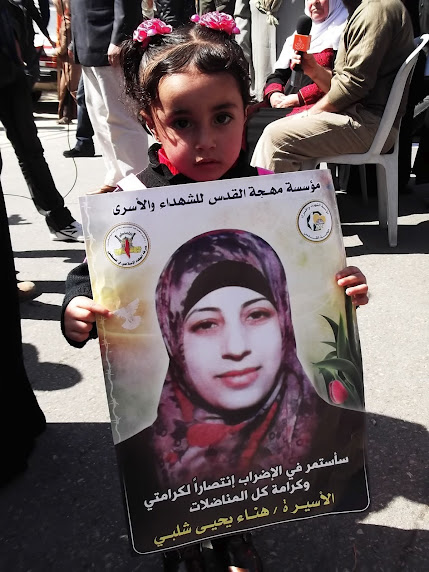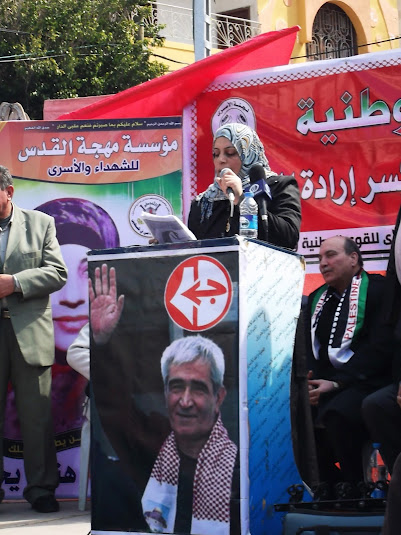Category: In the Media
-
Israeli troops kill a Palestinian youth; Injures and arrest another
by Ghassan Bannoura 8 March 2012 | International Middle East Media Center Twenty-two years old Zakariay Abu Iram was killed while Mohamed Rashid, 18, was injured and arrested by Israeli troops as they attacked the southern West Bank village of Yatta on Thursday afternoon. Residents told IMEMC that Israeli troops stormed the village and tried…
-
Gaza rally for Hana Shalabi on International Women’s Day
by Joe Catron 8 March 2012 | Mondoweiss Hundreds of Palestinian women filled the street outside Gaza’s International Committee of the Red Cross this morning, marking International Women’s Day by demanding the release of administrative detainee Hana Shalabi on the 22nd day of her open hunger strike. The rally contained Palestinian women of every age,…
-
Red flags over Gaza: Palestinian leftists rally for Hana Shalabi
by Joe Catron 5 March 2012 | Mondoweiss Hundreds of Palestinians, mainly from the Popular Front for the Liberation of Palestine (PFLP), the Palestinian People’s Party (PPP), the Democratic Front for the Liberation of Palestine (DFLP), and other leftist factions, rallied for administrative detainee Hana Shalabi, now on her 19th day of an open hunger…


